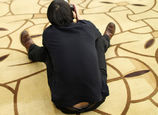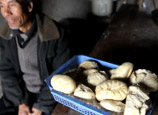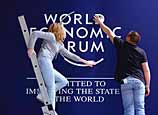
"If ordinary people throw their money around in a restaurant, it is a private act. We can do nothing other than despise it because they are using their own money," wrote a micro-blogger named Lengyanhuakai.
"Wasting taxpayers' money on lavish feasts is what should be treated as a crime."
Other netizens echoed these comments.
"If we want to erase the waste of food, we should start by eliminating corruption," said micro-blogger Liu Hongkai.
Legal practitioners said the intention of Yuan's suggestion is reasonable, but found it unrealistic to make wasting food a crime.
Yi Shenghua, director of criminal cases at the Yingke Law Firm in Beijing, said it will be impossible to evaluate the amount of food wasted by an individual if the act is listed as a crime.
"And I think it will be very hard to determine the threshold of the amount of wasted food that will lead to the people that waste them being criminally charged.
"The misuse of public money on extravagant banquets has been listed as a criminal activity and should be severely punished, but if someone spends his own money on food and wastes it, it is more suitable for us to criticize him morally rather than criminally chastise people."
Yi said education and publicity campaigns are the right way to reduce the waste of food, and authorities should establish a set of mechanisms to uproot officials' extravagant banquets.
In addition to Yuan, other Chinese celebrities have also made efforts to improve the public's awareness of food waste.
Khenpo So Dargye, a distinguished Tibetan lama who has more than 970,000 followers on his Sina Weibo account, called on people to "eat up what is on your plates" on his micro blog on Thursday, attracting more than 6,500 fans to share his words.
More than 200 billion yuan ($32 billion) worth of food, which can feed nearly 200 million people, is wasted in China each year, Xinhua News Agency quoted official sources as saying on Thursday.

















 Beijing fantasy emerges in dense fog
Beijing fantasy emerges in dense fog


![]()
